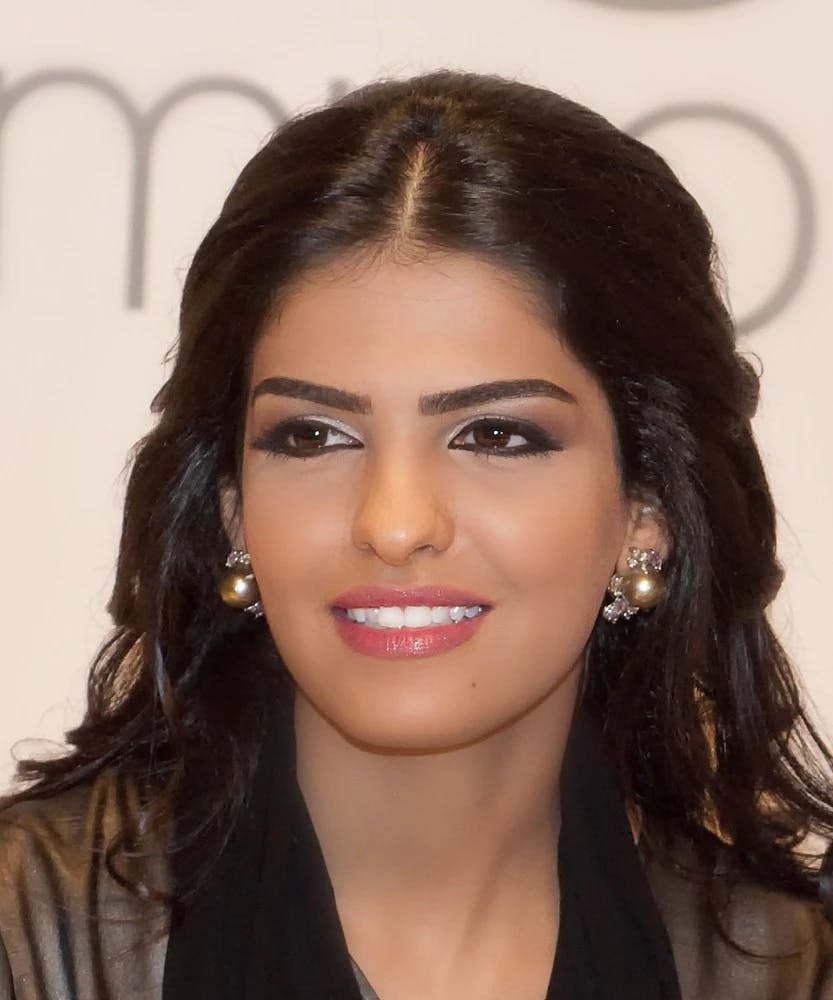4 Brave Women You Need To Know Who Are Fighting For Women’s Rights In The Middle East
In honor of International Women’s Day, let’s celebrate four women from the Middle East and Africa who have zeroed in on one particular civil right women are missing (whether it be the right to drive or the right to wear whatever they want) and made it their life mission to fight for that right.

Considering the major backlash that endangers these women when they advocate for basic civil rights, I’m sure that no one can contest their immense bravery.
Masih Alinejad
In Iran, one of the most hostile regions regarding women’s rights, emerges one of the bravest and most dedicated female activists – Masih Alinejad. In Iran, a strict dress code is imposed upon women, and any deviation away from baggy long sleeves and a hijab is grounds for an arrest. Masih’s fight for the freedom of women’s expression caught the attention of a group of non-governmental organizations, and she was awarded the Women’s Rights Award.
Despite being heavily slandered by journalists back home (they claimed she was raped because she was immodest and didn’t wear a hijab – a claim which was completely false), she is still outspoken about her belief that women deserve the freedom to express themselves and not be constrained to follow ultra-orthodox practices against their will.
Princess Ameerah al-Taweel
Ameerah al-Taweel, a former princess of Saudi Arabia, is an active philanthropist who constantly lends her voice to plenty of people around the world who need it (not just women). But here, we will focus on her work for women’s rights.
It’s not lost on her that Saudi Arabia is one of the worst countries when it comes to women’s rights, and she actively tries to fix that. According to Forbes’ article, "Despite the fact that 57% of college graduates are women, they only make up about 15% of the workforce." Ameerah recognizes that, and through her foundation, she has actively found solutions to help women find employment. She encourages women to seek education and play leadership roles. She’s aware of the lack of rights for women in that region and tries to change that rather than deny it.
Haja Aicha
To even believe in female genital mutilation (FGM) is a mental disease on its own. Many areas, not just in the Middle East, but in Africa as well, have one too many defenders and practitioners of this crime, and shockingly many of them are women.
Haja Aicha was one of the millions of young girls who underwent FGM in Sudan. Shortly after, she was married off at the age of 13. Now, decades later, she’s part of a grassroots fight against forcing young girls to be subjected to this practice. This practice causes a multitude of health risks, ranging from constant vaginal tissue swelling to urinary issues to the need for even more “surgery” to death.
People may hesitate to criticize FGM because it’s a cultural tradition, but we need to start putting the needs of young girls ahead of our fears of being labeled whatever the opposition would label us. Haja Aicha remembers the suffering she endured because of these cultural traditions, and she hopes to get rid of this practice.
Malala Yousafzai
Although it may be cliché at this point, you can’t read an article about Middle Eastern women trying to make a difference without Malala being mentioned, but the more her story is repeated, the more intense it seems.
The students I teach are barely older than Malala was when she was shot in the head in 2012 for speaking up for girls’ right to go to school. Knowing the backlash that Malala got, not just from the Taliban, but from girls around her age makes her story that much more inspirational. (This article quotes one seventh grade female in Pakistan saying: “Malala is working against Islam and Pakistan, and she has no right to come to Pakistan when she is only working against us.”) The fact that this level of brainwashing occurs makes women rising up in these circumstances all the more impressive.
Malala survived, and she continues to promote women’s right to education. In recognition of her efforts, she was awarded the Nobel Peace Prize in December 2014, the youngest recipient ever at 17 years old.
Closing Thoughts
Although it feels like women still have decades to go before they will have basic liberties in the Middle East, these brave women make it feel like that time will come much sooner. The personal connection I share with these women and women like them could be because I am the daughter of two immigrants who originated from that area of the world, but it would be a shame if their names were only known to the Middle East.
Advocating for basic civil rights shouldn’t be something that puts us in danger, and hopefully, with more and more women coming out and speaking out against the cruel nature of FGM or the absurdity of only 15% of Saudi women being employed despite graduating at a faster rate than their male counterparts, it won’t be.